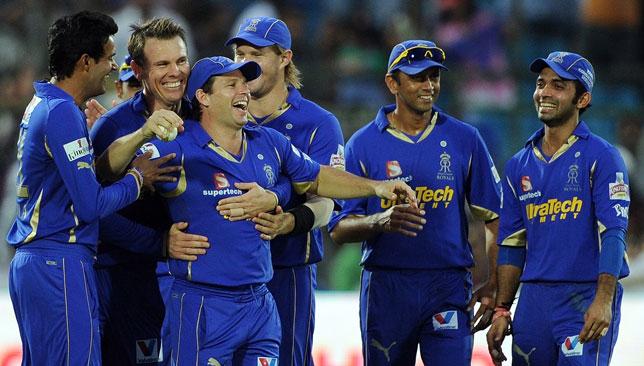
The Indian Premier League spot-fixing saga of 2013 reached a critical stage on Saturday with an Indian court dropping all charges against the three cricketers accused of wrongdoing.
Former Rajasthan Royals players S Sreesanth, Ankeet Chavan and Ajit Chandila were let off by a Delhi court as there was insufficient evidence to prove their guilt according to the special law under which the players were chargesheeted.
However, the cricketers are not likely to get any relief from the Indian cricket board as the BCCI is sticking to its decision to ban two players (Sreesanth and Chavan), explaining that any criminal proceedings in a court of law will not have any bearing on the disciplinary action it took.
Match fixing. Bowling fixing. Batting fixing. Judgement?? IPL Rules India.
— R. Balakrishnan (@BalakrishnanR) July 25, 2015
This is a tricky situation. The cricketers were charged under India’s Maharashtra Control of Organised Crime Act because there is no specific law in the country which deals with fixing. However, since the provisions of the said act are very strict, the guilt of the players was not proven beyond any doubt and hence they were let off.
The BCCI maybe is morally correct in sticking to its decision but the perception is that it’s out of sync with the court’s verdict. Even though the BCCI is not budging from its stand, the fact remains that a court of law has found the players not guilty. That is a huge shot in the arm for the two and it’s only a matter of time before they appeal against their bans.
When it’s the matter of enforcement of law, the board needs to be very careful what stance it takes because it can backfire very easily.
At the beginning of the century, the Indian board had found two of its star cricketers – captain Mohammad Azharuddin and Ajay Jadeja – guilty of match fixing and slapped a life and five-year ban on them respectively. However, in the course of time, Jadeja got the ban on him quashed by the Delhi High Court in 2003 and he made a comeback to the domestic circuit.
– Vohra’s View: Banning IPL sides is completely illogical
– Ashes: Bairstow replaces Ballance for England
– India: Rahane positive despite Zimbabwe tour
In the case of former skipper Azharuddin, another court struck down his life ban in 2009.
There are two major questions here. First, should a player, guilty of any impropriety or otherwise, be allowed to earn a livelihood through the only means he is capable of and secondly, should a board hand out life bans knowing that the guilt of the cricketer might never be proven absolutely, at least under current Indian laws.
Unlike in the UK, match-fixing is not a criminal offence in India and it is next to impossible to convict any cricketer under those charges.
Given the scenario, the BCCI should have reserved its verdict to ban the players pending the court proceedings and given them a chance to at least use its facilities for training, if not more.
And we hoped the IPL commissioner will weed out corruption in cricket within weeks. pic.twitter.com/K8MoAVKXHg
— Guruprasad Bhat (@Gbhat_RW) July 26, 2015
Because the players were caught by Indian law enforcement agencies, the rule of the land is ultimately applicable. Had the BCCI themselves caught the players, the scenario would have been totally different. Like the recent case where they suspended Mumbai cricketer Hiken Shah for approaching a teammate to fix matches.
What the Indian board should now do is ensure that its anti-corruption unit is so strong that players are caught in its net and not by law enforcement officials.
And ultimately, it must push the government to make specific laws pertaining to match-fixing and make it a criminal offence so that such contradictory situations don’t arise again.